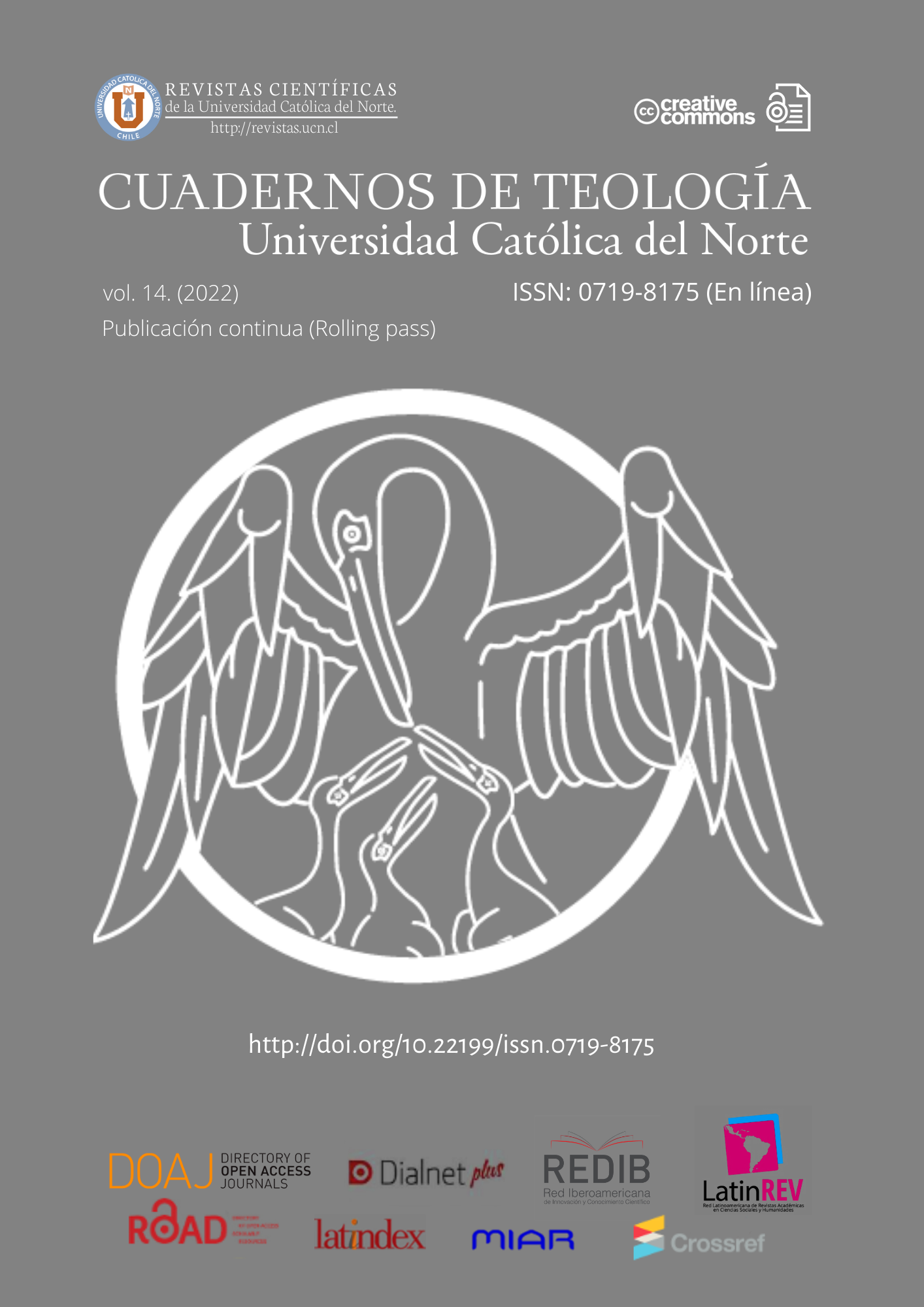Contemplate emptiness
DOI:
https://doi.org/10.22199/issn.0719-8175-4926Keywords:
mystical, God, emptiness, nihilism, reasonAbstract
The intuition of the absolute leads to the recognition that we are not in control of the circumstances around us. While one of the resulting options is to acknowledge that we don't know enough, it is not enough to stay in the latency of skepticism. In this text the term of emptiness is explored, which entails the consideration of nothingness and the option of seeing it as a foundation. In such a way, contemplating emptiness focuses on the implications of nothingness in human life, rubbing off on the notion of divine pathos or the conception of a deity interested in man. The article alludes to different considerations to understand nothingness as the foundation of the presence of being in the world; from this follows the question about God and his relationship with nothingness. Next, the dialectic of man facing the consciousness of nothing is addressed, as well as some religious positions in the face of emptiness, either to deny, affirm or precede his experience. Some characteristics of the path to the consciousness of the absolute are nuanced and the edges of the mystical frontier alluded to by Eckhart, Nāgārjuna, Heschel, Wilber, Cioran and Nishitani are delimited.
References
Arnau, J. (2005). La palabra frente al vacío. La filosofía de Nāgārjuna. FCE.
Cioran, E. M. (2010). Breviario de los vencidos (J. Garrigós, Trad.). Tusquets.
Eckhart, M. (2011). El fruto de la nada y otros escritos (A. Vega Esquerra, Trad.). Alianza.
Goldstein, J., y Kornfield, J. (2012). Vipassana. El camino para la meditación interior. Kairós.
Heisig, J. (2003). Introducción. En K. Nishitani, La religión y la nada (R. Bouso García, Trad.) (2a ed., pp. 9-25). Siruela.
Heschel, A. J. (1973a). Los profetas (V. A. Mirelman, Trad.) (Vol. 2). Paidós. https://bit.ly/3xe7mGS
Heschel, A. J. (1973b). Los profetas (V. A. Mirelman, Trad.) (Vol. 3). Paidós.
Heschel, A. J. (1982). El hombre no está solo (T. Snajer, Trad.). Seminario Rabínico Latinoamericano.
Heschel, A. J. (1984). Dios en busca del hombre (T. Snajer, Trad.). Seminario Rabínico Latinoamericano.
Kaplan, M. (1984). El significado de Dios para el judío contemporáneo. Maj´Shavot, 23(2), 49-60. https://bit.ly/3mib5Nj
Nāgārjuna (2003). Versos sobre los fundamentos del Camino Medio (Mulamadhyamakakarika) (A. Vélez de Cea, Trad.). Kairós.
Nāgārjuna (2011). Fundamentos de la vía media (Mulamadhyamakakarika). (A. Vélez de Cea, Trad.). Siruela.
Nietzsche, F. (2004). Cómo se filosofa a martillazos (L. Rutiaga, Trad.). Tomo.
Nishitani, K. (2003). La religión y la nada (R. Bouso García, Trad.) (2a ed.). Siruela.
Reina Valera. (1960). https://www.biblia.es/biblia-online.php
Schopenhauer, A. (2011). El amor, las mujeres y la muerte (M. Urquiola, Trad.) (29a ed.). Edaf.
Siegel, S. (1964). Introducción a la mística judía. Maj´Shavot, 3(3), 70-79. https://bit.ly/3NMQgFA
Smith, H. (1997). Las religiones del mundo. Océano.
Vega Esquerra, A. (Trad.). (2011). Introducción. En M. Eckhart, El fruto de la nada y otros escritos (pp. 17-46). Alianza.
Volpi, F. (2005). El nihilismo (C. I. del Rosso y A. G. Vigo, Trads.) (2a ed.). Biblos.
Wilber, K. (2006). La conciencia sin fronteras. (M. I. Guastavino, Trad.) (14 ed.). Kairós.
Wilber, K. (2010). Los tres ojos del conocimiento (D. González Raga, Trad.). Kairós.
Published
How to Cite
Issue
Section
Copyright (c) 2022 Héctor Sevilla Godínez

This work is licensed under a Creative Commons Attribution 4.0 International License.
Los autores continúan como propietarios de sus trabajos, y pueden volver a publicar sus artículos en otro medio sin tener que solicitar autorización, siempre y cuando indiquen que el trabajo fue publicado originariamente en Revista Cuadernos de Teología (eISSN:0719-8175).












_(1).png)






